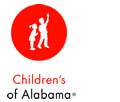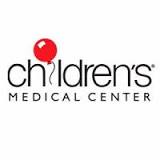Study of Lenvatinib in Combination With Everolimus in Recurrent and Refractory Pediatric Solid Tumors, Including Central Nervous System Tumors
| Status: | Recruiting |
|---|---|
| Conditions: | Brain Cancer, Brain Cancer |
| Therapuetic Areas: | Oncology |
| Healthy: | No |
| Age Range: | 2 - 21 |
| Updated: | 3/16/2019 |
| Start Date: | November 16, 2017 |
| End Date: | May 31, 2022 |
| Contact: | Eisai Medical Information |
| Email: | esi_oncmedinfo@eisai.com |
| Phone: | 1-888-274-2378 |
A Phase 1/2 Study of Lenvatinib in Combination With Everolimus in Recurrent and Refractory Pediatric Solid Tumors, Including CNS Tumors
Phase 1 of this study, utilizing a rolling 6 design, will be conducted to determine a maximum
tolerated dose (MTD) and recommended Phase 2 dose (RP2D), and to describe the toxicities of
lenvatinib administered in combination with everolimus once daily to pediatric participants
with recurrent/refractory solid tumors. Phase 2, utilizing Simon's optimal 2-stage design,
will be conducted to estimate the antitumor activity of lenvatinib in combination with
everolimus in pediatric participants with selected recurrent/refractory solid tumors
including Ewing sarcoma/peripheral primitive neuroectodermal tumor (pPNET), rhabdomyosarcoma,
and high grade glioma (HGG) using objective response rate (ORR) at Week 16 as the outcome
measure.
tolerated dose (MTD) and recommended Phase 2 dose (RP2D), and to describe the toxicities of
lenvatinib administered in combination with everolimus once daily to pediatric participants
with recurrent/refractory solid tumors. Phase 2, utilizing Simon's optimal 2-stage design,
will be conducted to estimate the antitumor activity of lenvatinib in combination with
everolimus in pediatric participants with selected recurrent/refractory solid tumors
including Ewing sarcoma/peripheral primitive neuroectodermal tumor (pPNET), rhabdomyosarcoma,
and high grade glioma (HGG) using objective response rate (ORR) at Week 16 as the outcome
measure.
Inclusion Criteria
- ≥2 years and <18 years of age for enrolment in Phase 1 or ≥2 years and ≤21 years of
age for enrolment in Phase 2.
- Recurrent or refractory solid tumors
- Phase 1: All solid tumors (measurable or evaluable disease), including primary
central nervous system (CNS) tumors; exclusion of hepatoblastoma and lymphomas.
Participants with diffuse intrinsic pontine glioma, optic pathway glioma, or
pineal tumors with elevated tumor markers (alpha-fetoprotein [AFP] and beta-human
chorionic gonadotropin [ß-hCG][or human chorionic gonadotropin [hCG])do not
require histological or cytological confirmation of diagnosis
- Phase 2: Ewing sarcoma/peripheral primitive neuroectodermal tumor (pPNET),
Rhabdomyosarcoma, High Grade Glioma (HGG) (all must have measurable disease);
exclusion of Diffuse Intrinsic Pontine Glioma
- Histologically or cytologically confirmed diagnosis
- Measurable disease that meets the following criteria (Phase 2):
1. RECIST 1.1 (for all tumor types except HGG): At least 1 lesion of ≥1.0 cm in the
longest diameter for a non lymph node or ≥1.5 cm in the short-axis diameter for a
lymph node which is serially measurable according to RECIST 1.1 using computed
tomography /magnetic resonance imaging (CT/MRI)
2. Response Assessment in Neuro-Oncology (RANO) for high grade glioma (HGG): At
least one lesion must be measurable as defined as a bi dimensionally contrast
enhancing lesion with clearly defined margins by CT or MRI scan, with a minimal
diameter of 1 cm, and visible on 2 axial slices which are preferably at most 5 mm
apart with 0 mm skip
Lesions that have had external beam radiotherapy (EBRT) or locoregional therapies such as
radiofrequency (RF) ablation must show evidence of progressive disease based on RECIST 1.1
to be deemed a target lesion
- Karnofsky performance score ≥50 for participants>16 year of age and Lansky play score
≥50 for participants ≤16 years of age. Neurologic deficits in participants with CNS
tumors must have been relatively stable for at least 7 days prior to study enrollment.
Participants who are unable to walk because of paralysis, but who are up in a
wheelchair, will be considered ambulatory for the purpose of assessing the performance
score
- Prior Therapy
- Participants must have fully recovered from the acute toxic effects of all prior
anti-cancer therapy
- Cytotoxic chemotherapy or other chemotherapy known to be myelosuppressive: ≥21
days after the last dose of cytotoxic or myelosuppressive chemotherapy (42 days
if prior nitrosourea)
- Anti-cancer agents not known to be myelosuppressive (eg, not associated with
reduced platelet or absolute neutrophil counts): ≥7 days after the last dose of
agent
- Monoclonal antibodies: ≥21 days or 3 half-lives (whichever is shorter) of the
antibody must have elapsed after the last dose of a monoclonal antibody
(including checkpoint inhibitors). Toxicity related to prior antibody therapy
must be recovered to Grade ≤1
- Corticosteroids: If used to modify immune adverse events related to prior
therapy, ≥14 days must have elapsed since last dose of corticosteroid.
Participants receiving corticosteroids, who have not been on a stable or
decreasing dose of corticosteroid for at least 7 days prior to enrollment, are
not eligible
- Hematopoietic growth factors: ≥14 days after the last dose of a long-acting
growth factor or 7 days for short-acting growth factor. For agents that have
known adverse events occurring beyond 7 days after administration, this period
must be extended beyond the time during which adverse events are known to occur
- Interleukins, interferons, and cytokines (other than hematopoietic growth
factors): ≥21 days after the completion of interleukins, interferons or cytokines
(other than hematopoietic growth factors)
- Stem cell infusions (with or without total body irradiation): Allogeneic
(non-autologous) bone marrow or stem cell transplant, or any stem cell infusion
including donor leukocytes infusion or boost infusion: ≥84 days after infusion
and no evidence of graft versus host disease; Autologous stem cell infusion
including boost infusion: ≥42 days
- Cellular Therapy: ≥42 days after the completion of any type of cellular therapy
(eg, modified T cells, natural killer cells, dendritic cells, etc)
- Radiotherapy (XRT)/External Beam Irradiation including Protons: ≥14 days after
local XRT; ≥150 days after total body irradiation, craniospinal XRT or if
radiation to ≥50% of the pelvis; ≥42 days if other substantial bone marrow
radiation.
- Radiopharmaceutical therapy: ≥42 days after systemically administered therapy.
- Vascular endothelial growth factor (VEGF)/VEGF receptor (VEGFR)-targeted or
mammalian target of rapamycin (mTOR)-targeted therapies: Must not have received
prior exposure to lenvatinib; May have previously progressed on an mTOR
inhibitor; No more than 2 prior VEGF/VEGFR-targeted therapies (For Phase 2 only);
Must not have received prior VEGF/VEGFR-targeted therapy in combination with an
mTOR inhibitor (For Phase 2 only)
- Adequate bone marrow function for participants with solid tumors without known bone
marrow involvement
- Adequate bone marrow function for participants with known bone marrow metastatic
disease
- Adequate renal function
- Adequate liver function
- Adequate cardiac function
- Adequate neurologic function
- Adequate blood pressure (BP) control with or without antihypertensive medications
- Adequate coagulation
- Adequate pancreatic function
- Participants must have a minimum body surface area (BSA) of 0.6 m^2 at study entry.
Exclusion Criteria
- Participants who have had or are planning to have the following invasive procedures
- Major surgical procedure, laparoscopic procedure, open biopsy or significant
traumatic injury within 28 days prior to enrolment
- Central line placement or subcutaneous port placement is not considered major
surgery. External central lines must be placed at least 3 days prior to
enrollment and subcutaneous ports must be placed at least 7 days prior to
enrollment
- Fine needle aspirate within 7 days prior to enrolment
- Surgical or other wounds must be adequately healed prior to enrolment
- For purposes of this study, bone marrow aspirate and biopsy are not considered
surgical procedures and therefore are permitted within 14 days prior to start of
protocol therapy
- Participants who have non-healing wound, unhealed or incompletely healed fracture, or
a compound (open) bone fracture at the time of enrolment
- Clinical evidence of nephrotic syndrome prior to enrolment
- Gastrointestinal bleeding or active hemoptysis (bright red blood of at least half
teaspoon) within 21 days prior to enrolment
- Thrombotic/ thromboembolic event requiring systemic anticoagulation within 90 days
prior to enrollment
- Evidence of new intracranial hemorrhage of more than punctate size on MRI assessment
obtained within 28 days prior to study enrollment for Participants with HGG
- Diagnosis of lymphoma
- Radiographic evidence of major blood vessel invasion/infiltration.
- Evidence of untreated CNS metastases
- Participants who are currently receiving enzyme-inducing anticonvulsants
- Participants chronically receiving strong cytochrome P450 3A4 (CYP3A4)/P-glycoprotein
(P-gp) inhibitors or inducers within 7 days prior to study enrollment
- Females who are breastfeeding or pregnant. For females of childbearing potential, a
negative screening pregnancy test must be obtained within 72 hours before the first
dose of study drug
We found this trial at
20
sites
225 E Chicago Ave
Chicago, Illinois 60611
Chicago, Illinois 60611
(312) 227-4000

Ann & Robert H. Lurie Children's Hospital of Chicago Ann & Robert H. Lurie Children
Click here to add this to my saved trials
Click here to add this to my saved trials
Children's Hospital of Alabama Children
Click here to add this to my saved trials
3333 Burnet Avenue # Mlc3008
Cincinnati, Ohio 45229
Cincinnati, Ohio 45229
1-513-636-4200

Cincinnati Children's Hospital Medical Center Patients and families from across the region and around the...
Click here to add this to my saved trials
Childrens Hospital Los Angeles Children's Hospital Los Angeles is a 501(c)(3) nonprofit hospital for pediatric...
Click here to add this to my saved trials
Children's Hospital of Orange County For more than 45 years, CHOC Children’s has been steadfastly...
Click here to add this to my saved trials
Children's Hospital of Philadelphia Since its start in 1855 as the nation's first hospital devoted...
Click here to add this to my saved trials
4401 Penn Avenue
Pittsburgh, Pennsylvania 15224
Pittsburgh, Pennsylvania 15224
412-692-5325

Children's Hospital of Pittsburgh of UPMC UPMC is one of the leading nonprofit health systems...
Click here to add this to my saved trials
Children's Hospital Colorado At Children's Hospital Colorado, we see more, treat more and heal more...
Click here to add this to my saved trials
Dana-Farber Cancer Institute Since it’s founding in 1947, Dana-Farber has been committed to providing adults...
Click here to add this to my saved trials
Children's Medical Center of Dallas Children's Medical Center is private, not-for-profit, and is the fifth-largest...
Click here to add this to my saved trials
Texas Children's Hospital Texas Children's Hospital, located in Houston, Texas, is a not-for-profit organization whose...
Click here to add this to my saved trials
Click here to add this to my saved trials
Loma Linda University Medical Center An outgrowth of the original Sanitarium on the hill in...
Click here to add this to my saved trials
Click here to add this to my saved trials
Click here to add this to my saved trials
Memorial Sloan Kettering Cancer Center Memorial Sloan Kettering Cancer Center — the world's oldest and...
Click here to add this to my saved trials
Click here to add this to my saved trials
Seattle Children's Hospital Seattle Children’s Hospital specializes in meeting the unique physical, emotional and developmental...
Click here to add this to my saved trials
111 Michigan Ave NW
Washington, District of Columbia
Washington, District of Columbia
(202) 476-5000

Childrens National Medical Center As the nation’s children’s hospital, the mission of Children’s National Medical...
Click here to add this to my saved trials










